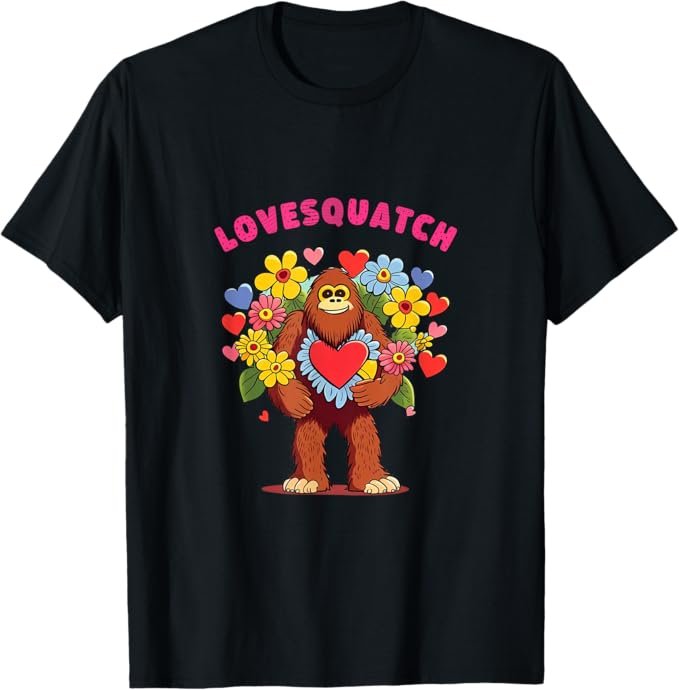How the Bleep to Navigate a Vegan Diet with Food Allergies
So, you’re all set to embrace a plant-based lifestyle, but there’s a catch—you’ve got food allergies or intolerances. You might be thinking, “How the bleep am I supposed to navigate a vegan diet with all these restrictions?” Don’t worry; it’s not as daunting as it sounds! With a bit of planning, some smart substitutions, and a few tips and tricks up your sleeve, you can manage a vegan diet even with food allergies or intolerances. In this guide, we’ll dive into strategies for reading labels like a pro, finding bleepin’ brilliant substitutions, and planning meals that are both safe and delicious. Plus, we’ll compare some of the best allergy-friendly vegan cookbooks, snack options, and meal delivery services. Let’s get started!
How the Bleep Do You Handle Allergies on a Vegan Diet?
First things first: navigating a vegan diet with food allergies requires a bit of detective work. Common allergens like nuts, soy, gluten, and even certain fruits can make meal planning a bit tricky, but with the right approach, you can find tasty and safe alternatives.
Reading Labels Like a Bleepin’ Pro: Going Beyond the Basics
Reading labels isn’t just a skill—it’s a necessity. Whether you’re avoiding gluten, nuts, soy, or other allergens, it’s crucial to know exactly what’s in your food. Here’s a more detailed guide:
- Ingredients to Watch For: Some allergens hide under sneaky names. For example, “casein” is a protein found in milk, and “albumin” is derived from eggs. Gluten can lurk in “malt,” “barley,” or “triticale,” and soy might be labeled as “edamame” or “tempeh.” Knowing these names is essential for avoiding accidental exposure.
- “May Contain” vs. “Processed in a Facility”: Understanding these terms is vital. “May contain” means there’s a potential for cross-contact during production, while “processed in a facility” indicates the food is made in a place where allergens are present. Both can pose risks depending on your sensitivity level.
- Vegan Certifications and Allergens: Just because something is labeled vegan doesn’t mean it’s allergen-free. However, products with certifications like “Certified Vegan” are generally more transparent about their ingredients, making it easier to identify potential allergens.
Mastering Substitutions: More Options for Every Allergen
Let’s face it—when you’re vegan and dealing with allergies, finding suitable substitutions is like finding gold. But don’t worry, there are plenty of options out there:
- Dairy Substitutes: Instead of dairy milk, opt for nut-free options like oat, rice, or coconut milk. For those avoiding soy, there are also pea protein-based milks that are thick and creamy. These alternatives work well in coffee, baking, and cooking.
- Egg Replacements: For baking, try applesauce, mashed bananas, or a flaxseed “egg” (one tablespoon of flaxseed meal mixed with three tablespoons of water). Aquafaba, the liquid from canned chickpeas, is another excellent egg substitute, especially for recipes requiring whipped eggs, like meringues and mousses.
- Nut Alternatives: If you’re allergic to nuts, sunflower seeds, pumpkin seeds, and hemp seeds can make excellent substitutes in recipes. They’re also great for adding crunch to salads or stir-fries. Tahini (made from sesame seeds) can be a great replacement for nut butters in sauces and dressings.
- Gluten-Free Options: For those avoiding gluten, alternative flours such as almond, coconut, chickpea, and rice flour can be used in baking and cooking. These flours offer different textures and flavors, so experimenting can help you find what works best for your needs.
Planning Your Meals Like a Bleepin’ Boss: Advanced Tips
Meal planning is key to avoiding allergens and staying on track with your vegan diet. Here’s how to plan like a pro:
- Prep Ahead: Cook large batches of allergy-friendly staples like quinoa, rice, or gluten-free pasta and store them in the fridge or freezer. This makes it easy to throw together quick meals during the week. Batch cooking soups, stews, and stir-fries can also save time and reduce stress.
- Focus on Whole Foods: The fewer processed foods you eat, the less likely you are to run into hidden allergens. Fresh fruits, vegetables, legumes, and grains are naturally free from most common allergens. Building meals around these foods can make it easier to avoid allergens.
- Mix and Match: Create a list of safe foods you love and mix and match them to create different meals. This can help keep your diet varied and interesting. For example, swap different proteins like lentils, chickpeas, or tofu (if soy isn’t an issue) to keep your meals exciting.
Exploring Allergy-Friendly Vegan Cookbooks
Cookbooks can be a lifesaver when you’re navigating a vegan diet with allergies. Here’s a look at some of the best allergy-friendly vegan cookbooks out there:
Cookbooks That Don’t Give a Bleep About Allergies
Finding a good vegan cookbook that also caters to allergies can feel like finding a needle in a haystack. But don’t worry, these cookbooks are here to save the day:
- “The Superfun Times Vegan Holiday Cookbook” by Isa Chandra Moskowitz
This cookbook is perfect for anyone looking to navigate vegan cooking without the bleepin’ allergens. With a variety of recipes that are free from common allergens like gluten, soy, and nuts, it’s a great go-to for holiday meals and everyday cooking alike.
🔗 Check it out on Amazon - “Allergy-Free and Easy Cooking” by Cybele Pascal
This book focuses on recipes that are free from the top 8 allergens. It’s a fantastic resource for anyone who needs to avoid multiple allergens while still enjoying delicious, hearty meals. The recipes are simple and accessible, making it easy to whip up a meal without stress.
🔗 Buy it on Amazon - “The Gluten-Free Vegan” by Susan O’Brien
A lifesaver for anyone who’s both gluten-free and vegan, this cookbook offers simple, wholesome recipes that are safe and satisfying. It’s perfect for those days when you just don’t want to deal with bleepin’ complicated cooking.
🔗 View it on Amazon - “Gluten-Free Vegan Comfort Food” by Susan O’Brien
This book focuses on comfort food classics that are free from gluten and animal products. It’s perfect for those who crave hearty, satisfying meals without the worry of allergens.
🔗 Find it on Amazon
Comparing the Best Allergy-Friendly Vegan Cookbooks
To help you find the perfect cookbook, here’s a quick comparison:
- Recipe Variety: “The Superfun Times Vegan Holiday Cookbook” offers a wide range of dishes for special occasions, while “Allergy-Free and Easy Cooking” focuses on everyday meals that are quick and simple.
- Specialization: If you need gluten-free options, “The Gluten-Free Vegan” is a solid choice. For those looking to avoid the top 8 allergens, “Allergy-Free and Easy Cooking” has you covered.
- Cooking Style: “The Superfun Times Vegan Holiday Cookbook” features more elaborate recipes, perfect for impressing guests. In contrast, “The Gluten-Free Vegan” offers straightforward, easy-to-follow recipes for weeknight dinners.
Snack Like a Bleepin’ Pro: Allergy-Friendly Vegan Snacks
When hunger strikes, you need a quick, safe, and delicious snack. Here are some allergy-friendly vegan snacks that are perfect for on-the-go munching:
Detailed Reviews of Allergy-Friendly Snacks
- Enjoy Life Soft Baked Cookies
These cookies are free from the top 14 allergens, so you can snack away without a worry. They come in various flavors like chocolate chip, double chocolate brownie, and snickerdoodle. Each bite is soft and chewy, making them a favorite among kids and adults alike.
🔗 Grab them on Amazon - MadeGood Granola Bars
MadeGood granola bars are free from nuts, gluten, and dairy, making them a safe choice for just about everyone. Plus, they’re packed with nutrients from vegetables—what the bleep! They come in flavors like mixed berry, chocolate chip, and vanilla.
🔗 Buy them on Amazon - Hippeas Organic Chickpea Puffs
These crunchy, cheesy puffs are not only vegan but also free from the top allergens like gluten and nuts. They’re the perfect snack for when you’re craving something savory and satisfying. With flavors like vegan white cheddar and sriracha sunshine, there’s something for every palate.
🔗 Check them out on Amazon
Comparing Snack Brands: What to Look For
Finding the perfect snack can feel like a treasure hunt. Here’s a quick comparison to make your search easier:
- Brand Focus: Enjoy Life specializes in allergen-free snacks, ensuring everything they produce is safe for those with multiple allergies. MadeGood emphasizes nutrient-dense snacks that also cater to common allergies.
- Variety: Hippeas offers a range of savory snacks, while Enjoy Life and MadeGood provide more sweet options. Depending on your cravings, one brand might have a slight edge.
- Certifications: Look for “Free From” and “Certified Vegan” labels to ensure the snack meets your dietary needs. These certifications can provide peace of mind, especially for those with severe allergies.
Meal Delivery Services That Are Bleepin’ Amazing
Cooking every day can be a drag, especially when you’re juggling allergies and a vegan diet. Thankfully, these meal delivery services have your back with allergy-friendly vegan options:
In-Depth Reviews of Each Service
- Purple Carrot
Purple Carrot offers a variety of vegan meal kits, including some that are free from gluten, nuts, and soy. They provide all the ingredients you need to cook up a storm, with clear labels to help you avoid any allergens. The recipes are creative and designed to please a variety of palates, from comfort food lovers to those seeking something more exotic.
🔗 Check out their website - Daily Harvest
For those who want something quick and easy, Daily Harvest delivers pre-made smoothies, soups, and bowls that are vegan and can be customized to avoid specific allergens. It’s perfect for when you don’t have time to cook but still want something healthy and delicious. They offer a range of options, from hearty harvest bowls to refreshing smoothies.
🔗 Visit their site - Veestro
Veestro provides fully-prepared, plant-based meals that are free from dairy, gluten, and other common allergens. With a wide range of options, including high-protein and low-calorie meals, it’s perfect for anyone who wants to eat well without the hassle of cooking. Their menu includes dishes like red curry with tofu and kale and Mediterranean quinoa salad.
🔗 Explore their offerings
Additional Services to Consider
If you’re looking for even more options, here are a few additional meal delivery services to check out:
- Green Chef
Green Chef offers meal plans that cater to a variety of dietary needs, including vegan, gluten-free, and allergen-friendly options. Their recipes are crafted by chefs and include organic ingredients, making it a great choice for health-conscious eaters.
🔗 Learn more on their site - Sunbasket
Sunbasket provides a range of meal kits that are both vegan and allergen-friendly. With options like “Paleo Vegan” and “Gluten-Free Vegan,” they cater to specific dietary needs. They also offer ready-made meals for those who want to save time in the kitchen.
🔗 Check them out here
Personal Stories and Expert Tips: Real-Life Experiences with Vegan Allergies
Navigating a vegan diet with allergies can be challenging, but you’re not alone. Here are some real-life stories and expert tips to help you along the way:
Stories from Real People
- Sarah’s Story:
“I’ve been vegan for five years, but I recently found out I’m allergic to soy and nuts. At first, I was overwhelmed—how the bleep was I supposed to eat anything? But after some research and a lot of label reading, I found plenty of options. Now, I make my own seed butters and have learned to love chickpea tofu. It’s been a journey, but I’m feeling healthier and more confident in my diet choices.” - Tom’s Tips:
“As someone who’s both vegan and gluten-free, I’ve had my fair share of challenges. My best advice is to experiment in the kitchen. I’ve discovered so many great recipes by trying new flours and ingredients. Also, don’t be afraid to ask questions when eating out—most places are happy to accommodate.”
Expert Tips from Nutritionists and Dietitians
- Advice from a Plant-Based Nutritionist:
“Ensuring a balanced diet is crucial when you’re managing allergies on a vegan diet. Make sure you’re getting enough protein from diverse sources like lentils, beans, quinoa, and seeds. Also, consider a B12 supplement, as this vitamin is typically found in animal products and fortified foods.” - Tips from an Allergy Specialist:
“Cross-contamination can be a major concern for those with severe allergies. At home, designate specific areas or utensils for allergen-free cooking. When dining out, communicate your needs clearly to the staff and don’t hesitate to double-check ingredients.”
Common Misconceptions and FAQs About Vegan Allergies
There are a lot of myths out there about vegan diets and allergies. Let’s clear up a few common misconceptions:
Debunking Myths
- Myth 1: Vegan Diets Can’t Be Allergen-Free
Fact: While some people think vegan diets are limited to soy, nuts, and wheat, there are plenty of alternative foods available. From seed-based products to gluten-free grains, it’s entirely possible to enjoy a vegan diet without triggering allergies. - Myth 2: You Can’t Get Enough Protein Without Nuts and Soy
Fact: There are numerous plant-based sources of protein that don’t involve nuts or soy. Lentils, chickpeas, quinoa, and seeds all provide ample protein to meet daily requirements.
Frequently Asked Questions
- How Do I Ensure I’m Getting Enough Nutrients on an Allergen-Free Vegan Diet?
Make sure to include a variety of foods in your diet, focusing on whole grains, legumes, fruits, vegetables, and seeds. Consider supplements for nutrients like B12 and D3, which can be harder to obtain from a vegan diet. - What Are the Best Sources of Protein if I’m Allergic to Soy and Nuts?
Great options include lentils, chickpeas, quinoa, hemp seeds, chia seeds, and pea protein products. Each of these provides a good amount of protein while being allergen-friendly. - What Should I Do If I Accidentally Consume an Allergen?
Have a plan in place for accidental exposure, which might include antihistamines, an epinephrine injector, or other medications. Make sure those around you are aware of your allergies and know how to help in case of an emergency.
Trends and Innovations in Allergy-Friendly Vegan Foods
The world of vegan and allergen-friendly foods is always evolving. Here are some of the latest trends and innovations:
New Products on the Market
- Chickpea-Based Snacks: Chickpeas are becoming a popular base for snacks like chips, puffs, and even cookie dough. They’re naturally gluten-free and packed with protein, making them a great allergen-friendly option.
- Lentil Pasta: Lentil pasta is another great alternative for those avoiding gluten and soy. It’s high in protein and fiber, making it a nutritious and filling option for any meal.
- Coconut Milk Yogurt: For those avoiding dairy, soy, and nuts, coconut milk yogurt provides a creamy, delicious alternative. It’s great for breakfast, snacks, or even as a base for sauces and dressings.
The Future of Allergy-Friendly Vegan Eating
- Allergen-Free Meal Kits: More companies are starting to offer allergen-free meal kits, making it easier than ever to enjoy safe, delicious meals at home. These kits often cater to multiple allergies and dietary preferences, providing a variety of options for every taste.
- Personalized Nutrition Apps: New apps are being developed to help users navigate their dietary needs. These apps offer personalized meal plans, recipes, and shopping lists based on individual allergies and preferences.
- Subscription Snack Boxes: For those who love trying new snacks, subscription boxes that cater to specific allergies and dietary needs are becoming increasingly popular. These boxes deliver a curated selection of safe, tasty snacks right to your door.
Conclusion: Thriving on a Vegan Diet with Food Allergies
Navigating a vegan diet with food allergies might seem like a bleepin’ challenge, but with the right strategies, substitutions, and resources, it’s totally manageable. Remember to read labels carefully, find safe and delicious substitutions, and plan your meals ahead of time to avoid any mishaps. And don’t forget to check out those cookbooks, snacks, and meal delivery services that cater to your specific needs. With a little effort and creativity, you can enjoy all the benefits of a vegan diet without compromising your health or taste buds. Happy cooking, and may your meals always be safe and delicious!
Note: Prices and availability are subject to change. Be sure to check Amazon for the latest updates on these products.






